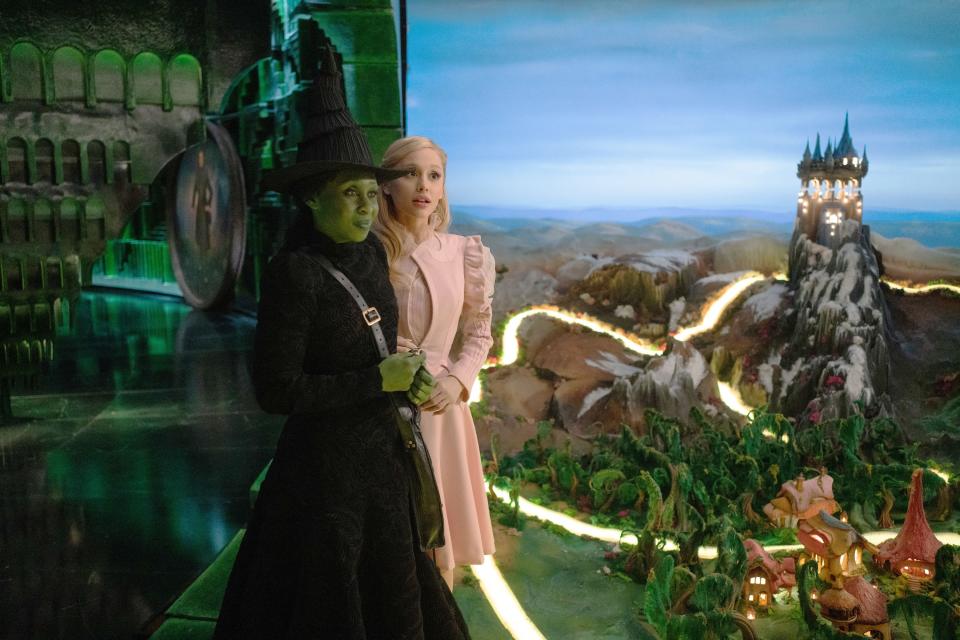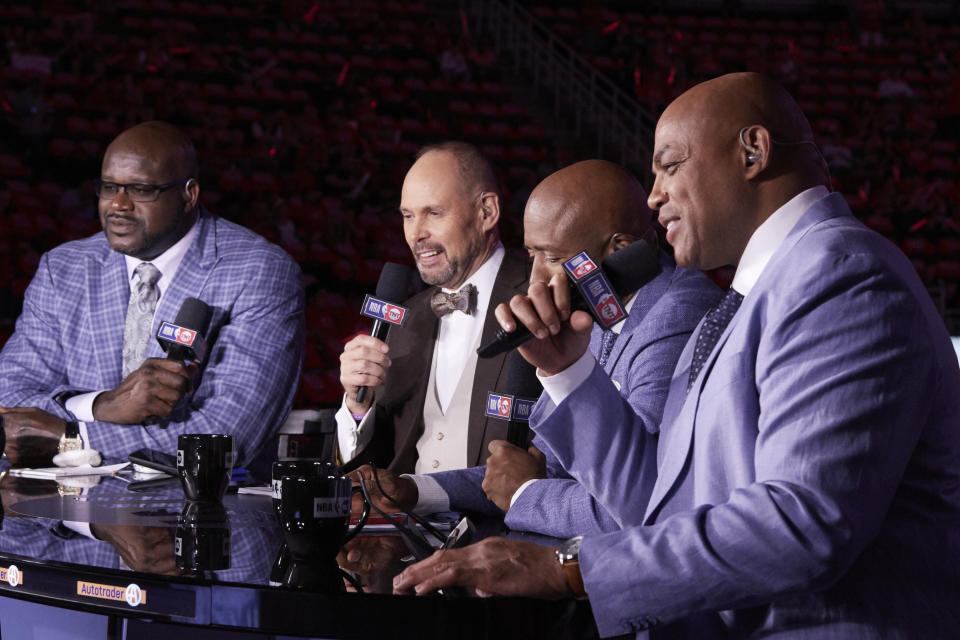In 1994, Gregory Maguire was broke, living in a cramped London flat and unsure of his future.
“I was what the British call ‘financially embarrassed,’” he told Yahoo Entertainment. Due to the terms of his visa, he was not able to work legally, and his only option was writing. He recalled his roommate making a suggestion: “She said, ‘Gregory, I’ve got a great idea. Why don’t you just write a bestseller?’”
At the time, Maguire had written several children’s books, but none had made much of a splash. He was itching to tackle broader themes like pain, tragedy and how societal expectations shape who we are.
Advertisement
Advertisement
What started as a modest idea — reimagining the backstory of the Wicked Witch of the West from L. Frank Baum’s The Wonderful Wizard of Oz — turned into an unexpected phenomenon. Published in 1995, Wicked: The Life and Times of the Wicked Witch of the West not only became a bestseller but was adapted into a hit Broadway musical that has become one of the longest-running shows in history, earning an estimated $5 billion in worldwide ticket sales since opening in 2003.
Now Maguire’s story is set to captivate a new generation, with a major film adaptation.
Wicked opens in theaters on Nov. 22, with the second film slated for release on Nov. 21, 2025. The films star Cynthia Erivo as Elphaba, the future Wicked Witch of the West, and Ariana Grande as the young Glinda the Good Witch, with Jonathan Bailey, as Fiyero, caught between them in a love triangle.
Cynthia Erivo as Elphaba and Ariana Grande as Glinda in a scene from “Wicked.” (Giles Keyte/Universal Pictures/Courtesy Everett Collection)
Looking back, Maguire said his roommate’s advice almost feels prophetic.
Advertisement
Advertisement
“I didn’t write Wicked in order to make myself rich,” he explained. “The truth is, I was 39 and thought, ‘OK, you better write this before somebody else does, because it’s a good idea.’”
‘Are people born wicked?’
In the musical version ofWicked, Glinda poses a question to the audience: “Are people born wicked, or do they have wickedness thrust upon them?”
It’s a question that haunted Maguire after the 1993 murder of 2-year-old James Bulger by two young boys in Britain, which inspired the central theme of Wicked.
“How do two 10-year-olds wake up in the morning and become murderers by evening?” he asked himself at the time. There were theories — a fatherless home, bullying by siblings — but none felt sufficient to Maguire. He took a similar approach when crafting the Elphaba character.
Advertisement
Advertisement
More in Entertainment
Elphaba’s backstory is tragic: rejected by her father for her green skin, and forced to confront the death of her mother. “I wanted to put lots of different concepts and theories about evil onto the page without drawing a conclusion about it,” said Maguire, who discovered personal parallels in Elphaba’s story.
“I was raised Catholic, I’m a gay man, I was the middle child of seven, my mother died when I was born. All of those make me,” he explained. “In the same way, all the things that happened to Elphaba are part of why she becomes the way she becomes — but it’s not just one thing.”
When writing the novel, Maguire wanted readers to form their own judgments about Elphaba as she grapples with unspoken questions about her identity and beliefs. Her resolve is tested when she refuses to align with the Wizard of Oz’s oppressive regime, prompting his propaganda machine to unfairly brand her as “wicked” and subject her to unjust persecution.
An unlikely friendship with Glinda, her popular yet insecure college roommate, forces Elphaba to ask herself: Am I truly wicked, or has the world decided to make me this way?
Erivo and Grande on set between takes with the film’s director, Jon M. Chu. (Giles Keyte/Universal Pictures/Courtesy Everett Collection)
Nearly three decades since the book was published, Maguire doesn’t know the answer.
Advertisement
Advertisement
“I still don’t know what evil is,” he said. “What I do know is that a human person who performs a wicked act suffers from an immense amount of self-loathing. Evil behavior, I think, is only possible when we cannot extend empathy to other people — or even ourselves.”
The boys from Oz
When Baum published The Wonderful Wizard of Oz in 1900, the U.S. was grappling with industrial innovation and territorial expansion.
Maguire sees Baum’s Oz — with its characters journeying through unfamiliar lands and encountering others who look and act differently — as a metaphor for America’s struggles with growth, displacement and otherness during the early 20th century, particularly as it relates to stealing Native American lands.
Maguire said he consciously infused these themes into his own vision, using Oz as a reflection of America’s challenges and a cautionary tale about repeating the past.
Advertisement
Advertisement
“I wanted cultures within Oz not to understand each other, to be racist and hegemonic and responsible for the ways in which their society doesn’t work,” he explained. “In that way, I wanted it to represent the United States somewhere between 1900 and 1930.”
Maguire has published four sequels to the original novel and a prequel, Elphie, due out in 2025. Wicked continues to evolve, and Oz remains a world of contradictions. At the same time, Maguire said it’s a place of imagination, resilience and an enduring hope for something better over the rainbow.
“I put down the world as I understood it,” Maguire said. “Maybe I understood subconsciously that bad things that have imperiled us in the past are always going to be imperiling.”
EMEA Tribune is not involved in this news article, it is taken from our partners and or from the News Agencies. Copyright and Credit go to the News Agencies, email news@emeatribune.com Follow our WhatsApp verified Channel





